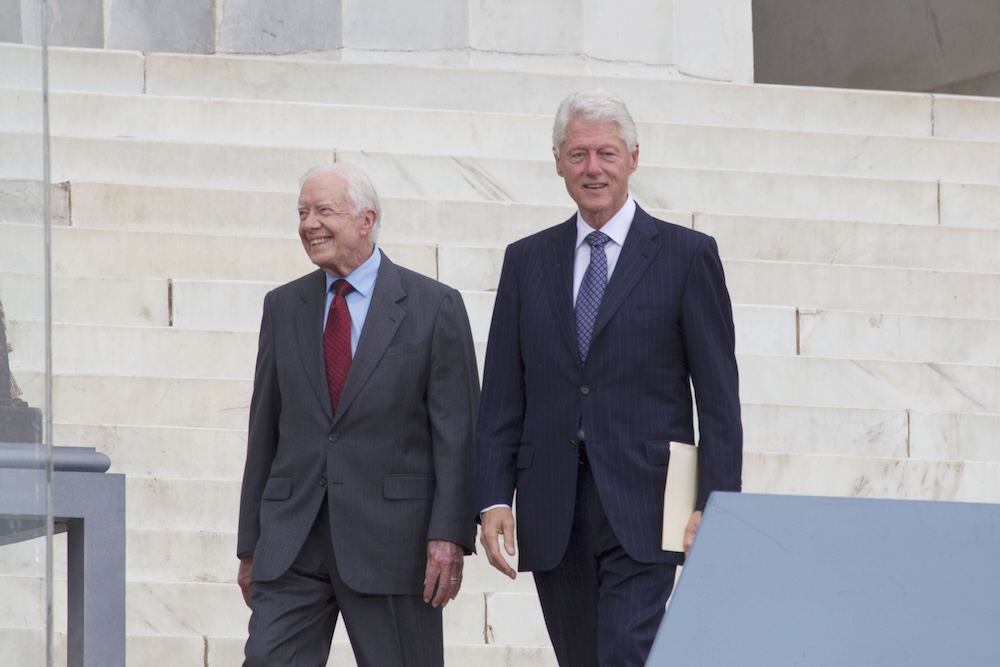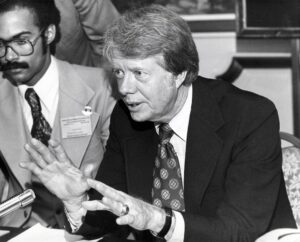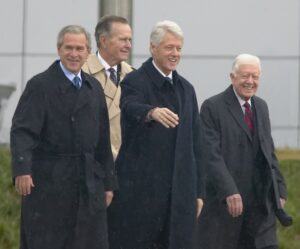Politics
REPORT: Bill Clinton Called Jimmy Carter A ‘Treasonous Prick’

As the nation prepares to honor former President Jimmy Carter with a state funeral on January 9, new accounts highlight a tense chapter in his post-presidential legacy. During the Clinton administration, Carter’s unauthorized diplomatic efforts in North Korea reportedly sparked outrage, with one senior official allegedly branding the former president a “treasonous prick.”
The episode, detailed in a National Review report, sheds light on the friction between the two Democratic leaders. Carter’s solo negotiations with North Korea, conducted without prior approval from the Clinton White House, left President Bill Clinton boxed into accepting a deal he had not sanctioned—complicating U.S. foreign policy at a critical moment.
According to a National Review, during Clinton’s presidency, Carter acted unilaterally to negotiate with North Korea—a move that blindsided the Clinton administration. Carter, accompanied by a CNN film crew, reportedly brokered a framework agreement with the rogue state and announced it publicly before consulting with Clinton’s team. The sudden announcement left the administration scrambling, with Clinton forced to accept the deal and abandon U.N. sanctions efforts.

Washington, DC US – May 7, 1976: Governor Jimmy Carter (Democrat of Georgia), a candidate for the 1976 Democratic Party nomination, appears at an event in Washington, DC.
Historian Douglas Brinkley, in his account, detailed the Clinton administration’s fury over Carter’s actions. One cabinet member allegedly used the inflammatory phrase to describe the former president, reflecting the depth of frustration at the time. Brinkley’s 1998 book, The Unfinished Presidency, painted an overwhelmingly positive picture of Carter’s post-presidency but included a particularly surprising account of Carter’s actions during the lead-up to the 1990–91 Persian Gulf War. The former president, known for his emphasis on diplomacy and peace building, reportedly took actions that raised eyebrows for their unorthodox nature and potential interference with the sitting administration’s foreign policy.
Carter traveled to North Korea with a CNN film crew, without prior notification to the Clinton administration, to negotiate an agreement’s framework. After finalizing the terms, he informed the Clinton team abruptly that he would be announcing the deal on CNN. The move greatly angered the Clinton administration, leading one cabinet member to label Carter a “treasonous prick,” as per Brinkley’s account. Adding fuel to the fire, Carter attended a dinner with North Korean dictator Kim Il Sung, where he falsely claimed on camera that the U.S. had ceased pursuing sanctions at the U.N. This move not only embarrassed the Clinton White House but also jeopardized ongoing diplomatic efforts.

Bill Clinton waves from the stage accompanied by George W. Bush, Jimmy Carter and George H. W. Bush during the opening ceremony of the Clinton Presidential Library November 18, 2004 in Little Rock, AK
After, Carter publicly criticized the potential war, emphasizing the importance of peaceful solutions, which he argued had not been fully exhausted. Despite Carter’s attempts, the UN authorized military intervention, and the Gulf War proceeded as planned. Traditionally, former presidents avoid interfering in the policies of their successors, especially on foreign policy matters. Carter’s actions were seen by some as stepping over this boundary, potentially undermining the sitting administration’s efforts.
While Clinton has not commented on the allegations, the reported remark highlights the challenges presidents face when managing the actions of their predecessors. Carter’s active post-presidency work often drew praise for its humanitarian focus but occasionally drew criticism for overstepping diplomatic boundaries.

